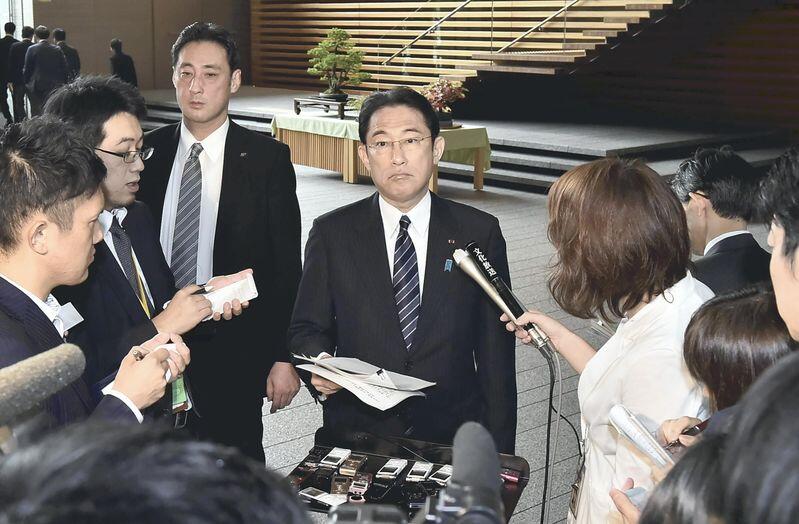Although the government approved a bill to ratify the Paris Agreement — a new international framework for greenhouse gas emissions cuts covering a period from 2020 — at a Cabinet meeting and submitted it to the ongoing Diet session Tuesday, it is certain Japan will not be able to officially participate in discussions on making rules for implementing the agreement at the 22nd session of the Conference of the Parties (COP22) to the U.N. Framework Convention on Climate Change to be held in Morocco on Nov. 7 to 18.
The government intends to quickly proceed with Diet deliberations and ratify the agreement, as a nation cannot officially take part in the international discussions until 30 days have passed since the nation ratified it.
But the government has apparently fallen behind the curve in dealing with the issue, and as a result, there is a fear that Japan could be left out of the loop in making the international rules to implement the agreement.
At a press conference on Tuesday, Foreign Minister Fumio Kishida stressed, “We’ll make every possible effort to swiftly obtain the Diet approval [of the bill].”
The secretaries general and Diet Affairs Committee heads of the ruling Liberal Democratic Party and its coalition partner Komeito met on Tuesday to confirm a policy of deliberating on the bill at the House of Councillors prior to the House of Representatives, and they aim for the ratification also at the lower house before the start of the COP22 talks in order to show their positive attitude toward measures against global warming.
However, as the government has given top priority to deliberating another bill to approve the Trans-Pacific Partnership trade pact and its related bills at the current Diet session, there is a possibility that the government could struggle to coordinate the deliberations for the ratification of the Paris Agreement. It is still uncertain that the government will be able to ratify the agreement by the start of COP22.
With ratification by the United States and China — the world’s two largest greenhouse gas emitters — as well as India and the European Union, the Paris Agreement will come into force on Nov. 4.
According to the United Nations, as of Tuesday the agreement had been ratified by 76 countries and territories, representing a total of about 60 percent of global emissions.
A nation is not allowed to participate in the first Conference of Parties to the Paris Agreement (CMA1), a meeting by signatories of the agreement to be held during the COP22 session, if 30 days have not passed since the nation ratified the agreement.
It will be impossible for Japan to join the meeting. Observers say Japan could be put in a disadvantageous position as it will not be able to take part in the meetings to make rules for the agreement from the start.
According to Environment Minister Koichi Yamamoto, major negotiations to set up guidelines to implement the agreement have been conducted with Japan’s participation. Therefore, a Foreign Ministry senior official said, “The impact [of Japan not joining the meetings from the start] would be limited.”
At the upper house Budget Committee on Oct. 5, Prime Minister Shinzo Abe said, “We’ll make efforts to have our views reflected in the guidelines.”
In spite of that, there are voices spreading within the government and ruling parties over a series of reactions to the Paris Agreement, as a mid-ranking LDP lawmaker said, “[The government] has misjudged the direction of the agreement and has fallen behind the curve in dealing with the issue.” A close aide to the prime minister also said, “The priority placed on the Paris Agreement was not high.”
Related ministries and agencies, including the Foreign Ministry and the Environment Ministry, had judged that the EU’s ratification would be difficult within the year and the agreement would come into force next year.
“It was late that the momentum for the early ratification was built within the government and the measures to cope with the issue were delayed,” an Environment Ministry senior official said.
Source: The Japan News











